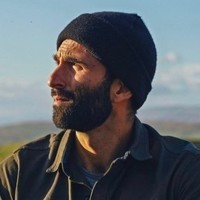
Dragonman, the Man Who Sells "People-Hunting Guns"
Meet Mel Bernstein. He goes by the name Dragonman, and he’s one of the largest independent purveyors of firearms in the western United States, and the self-proclaimed most armed man in America. At Dragonland—his home, shop, shooting range, and military museum outside Colorado Springs—no gun sells quicker than the weapon used in the most recent mass shooting. Amidst a new gun conversation, it’s business as usual. But even here, it turns out there’s a price to pay.


